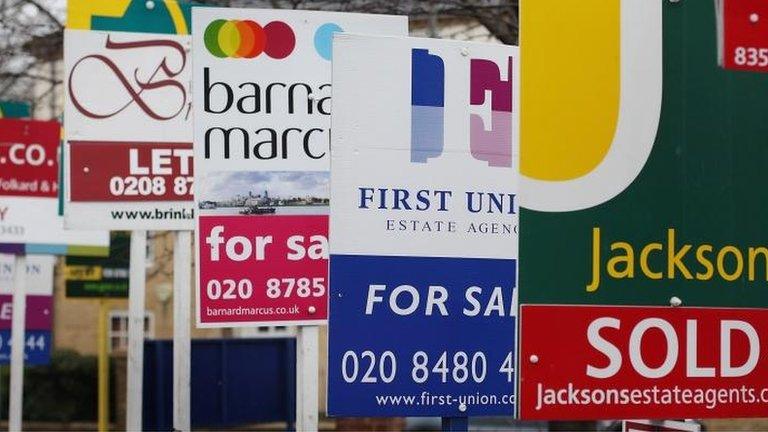Help to Buy: Osborne asks Bank of England to keep closer watch
- Published
Property analyst Kate Faulkner says the existing Help to Buy cap should be reduced
Chancellor George Osborne has asked the Bank of England to take a bigger role in ensuring his Help to Buy housing scheme does not fuel a property boom.
The Bank's Financial Policy Committee (FPC) will make annual reviews of the scheme, starting next September.
The committee had been due to make an assessment of Help to Buy only after its first three years of operation.
But the recent recovery in parts of the housing market has raised questions about the impact of the scheme.
Figures from the Nationwide Building Society, published on Friday, suggested year-on-year house price increases in all regions of the UK in the third quarter of 2013 - the first rise across the board for nearly six years.
However, there were significant regional differences. London recorded a 10% annual change, but the North of England saw a 0.2% rise over the same period.
Separate figures from the Land Registry suggested that prices were still falling in some regions of England and Wales.
Greater control
Help to Buy, external was originally launched to help buyers of new properties in England, with other schemes operating in Wales and Scotland. A second, potentially much bigger phase of the scheme is due to begin in January to assist buyers who might otherwise be unable to afford a down payment on a home.
The scheme provides taxpayer insurance for up to 15% of a mortgage on houses worth up to £600,000, allowing banks to provide up to 95% mortgages at a reduced risk.
The Bank of England's FPC will be able to modify parts of the scheme to keep it in check.
It will be allowed to review the scheme and could reduce the £600,000 cap, so fewer homes are affected.
The FPC could also also make loans less attractive by recommending that the Treasury raises the fees paid by lenders for the guarantees.
BBC business editor Robert Peston said the chancellor had responded to criticism that his Help to Buy scheme could cause a dangerous housing market boom.
'Vigilance'
"Earlier this week, the FPC put out a statement saying that it sees signs of recovery in the housing market, that these did not yet look like over-heating, but that it would be vigilant and pre-empt and prevent a recurrence of the bubble that formed in the boom years before the 2007-8 crash," our business editor says.
Up to £12bn of government guarantees will be on offer to help people get mortgages.
But since the second stage of the plan was announced in March, the housing market, particularly in London, has improved.
Business Minister Vince Cable is among those to have expressed his concerns about Help to Buy.
Earlier this month, the Royal Institution of Chartered Surveyors (Rics) said that a 5% annual rise in prices should trigger caps on how much people could borrow relative to their incomes or the value of the property.
Mortgage brokers and industry commentators have suggested that activity in the market needed to be kept in proportion.
"It is no wonder that George Osborne is beginning to get twitchy and is giving the Bank of England powers to put the brakes on Help to Buy if it gets out of hand," said Nicholas Ayre, managing director of homebuying agency Home Fusion.
"Although fears of a house price bubble are overstated, it is important not to be complacent. A bubble implies that people are buying anything at any price, and they are not, but the fear is that if demand continues to surge at the levels we are seeing, this will start to happen."
'Broadening recovery'
The Treasury said in a statement: "Now that the FPC have set out their latest assessment of the housing market... we are setting out more detail on how its role will work.
"The FPC's assessment this week - in line with that of the chancellor and the [Bank of England] governor - is that recent developments in the housing market represent a broadening recovery from low levels of activity, but that we must remain vigilant as that recovery progresses.
"The chancellor has asked the FPC to work with him every September, starting next year, to assess the ongoing impact of the Help to Buy scheme. Following that annual assessment, he has proposed that the FPC advise him on whether the key parameters of the scheme - the price cap and the fees charged to lenders - remain appropriate."
The Council of Mortgage Lenders (CML), which represents home loan providers, welcomed the information provided by the chancellor about how the second stage of Help to Buy would work, but said more detail was still needed about withdrawing the scheme.
"We now have an indication of how and when the Bank of England will determine whether the scheme needs to change during its three-year proposed lifespan, and this annual review will be a key deciding factor in that," said Paul Smee, CML director general.
"We hope that there will also soon be clarity on issues such as the government's exit strategy at the end of the scheme."
Ed Balls, the shadow chancellor, called for quicker analysis from the FPC.
"Instead of waiting a year, the Bank of England should review the details of the second phase of Help to Buy now before it goes ahead," he said.
He also called for a renewed building programme of low-cost homes.
Shares in house builders took a hit after the revision to the Help to Buy scheme was announced.
Persimmon, Taylor Wimpey, Barratt, Bellway and Bovis fell between 3-4%, while estate agents Countrywide fell almost 5%.
- Published29 May 2014
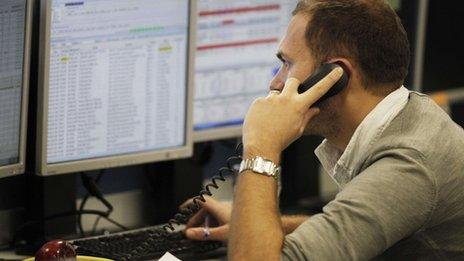
- Published26 September 2013
- Published27 September 2013
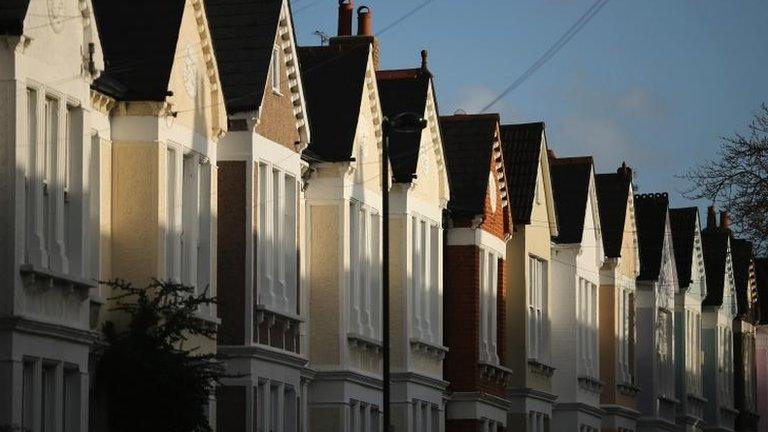
- Published9 July 2020

- Published18 September 2013
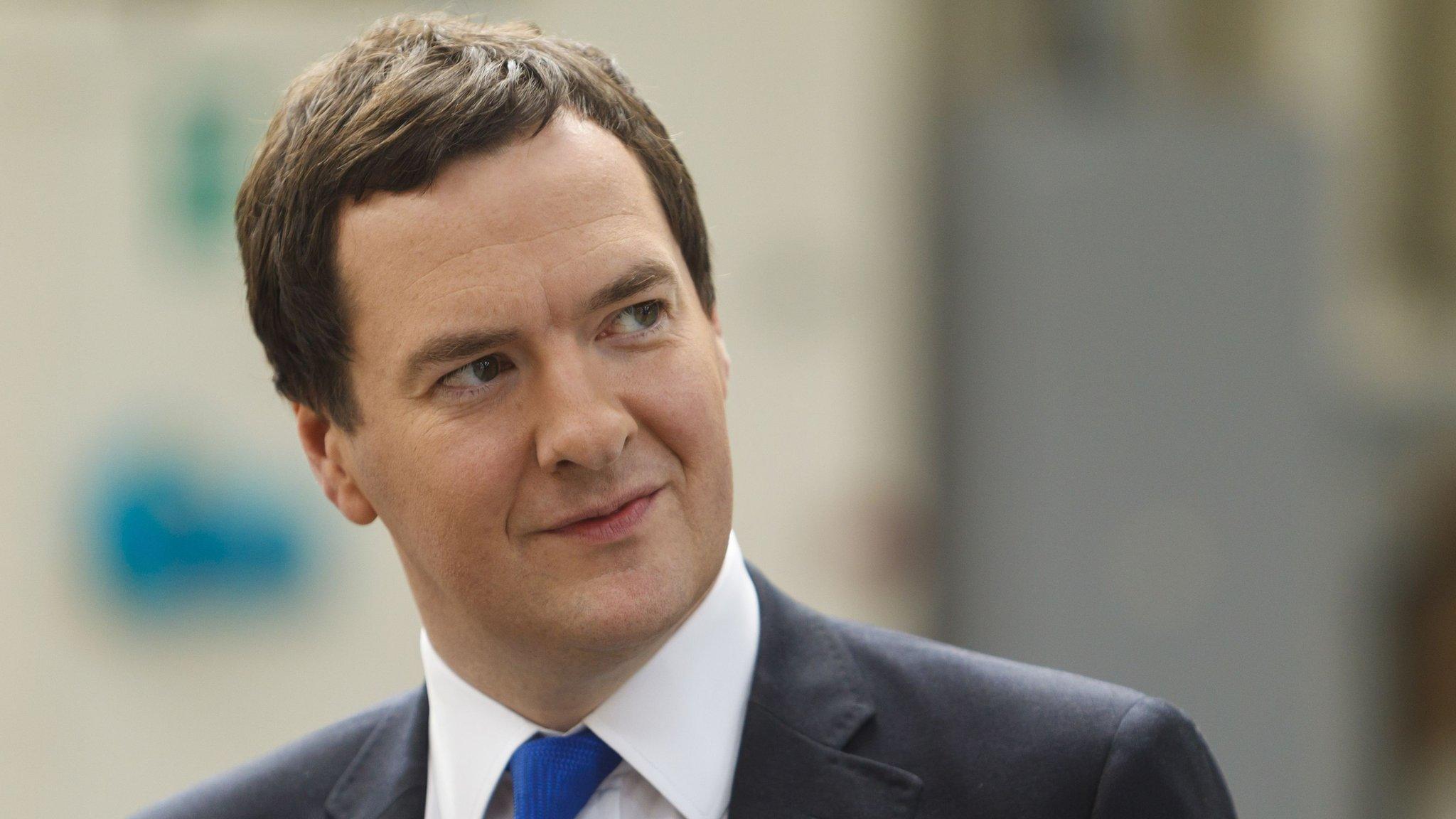
- Published13 September 2013
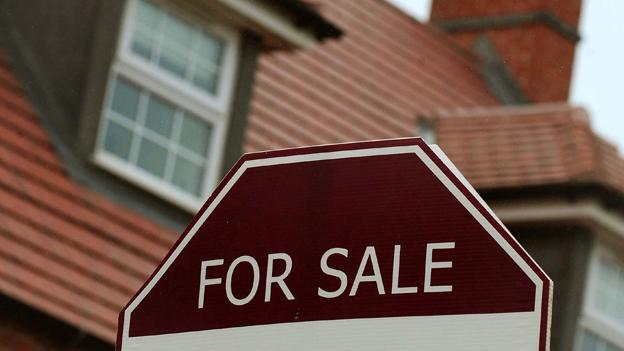
- Published13 September 2013
